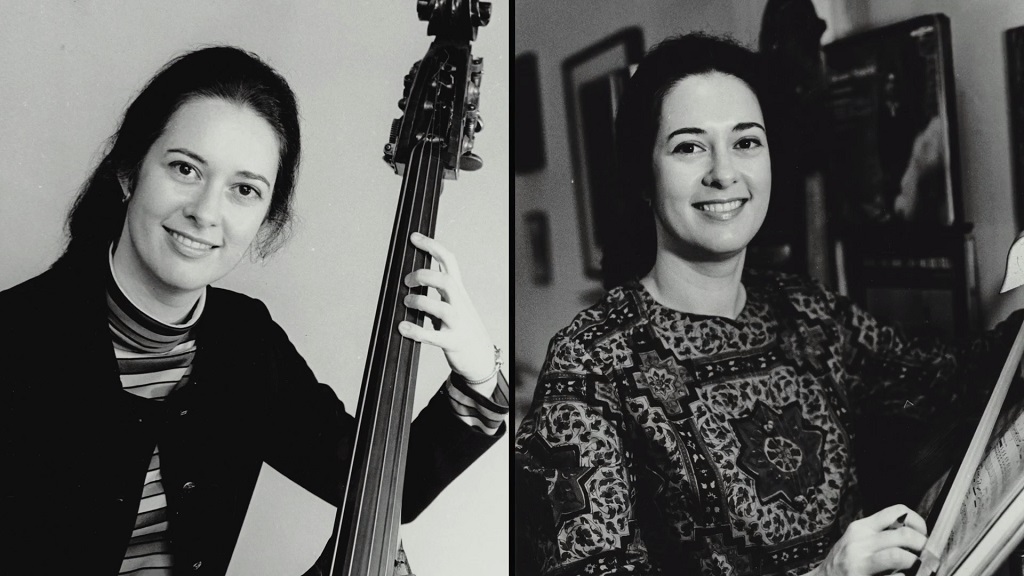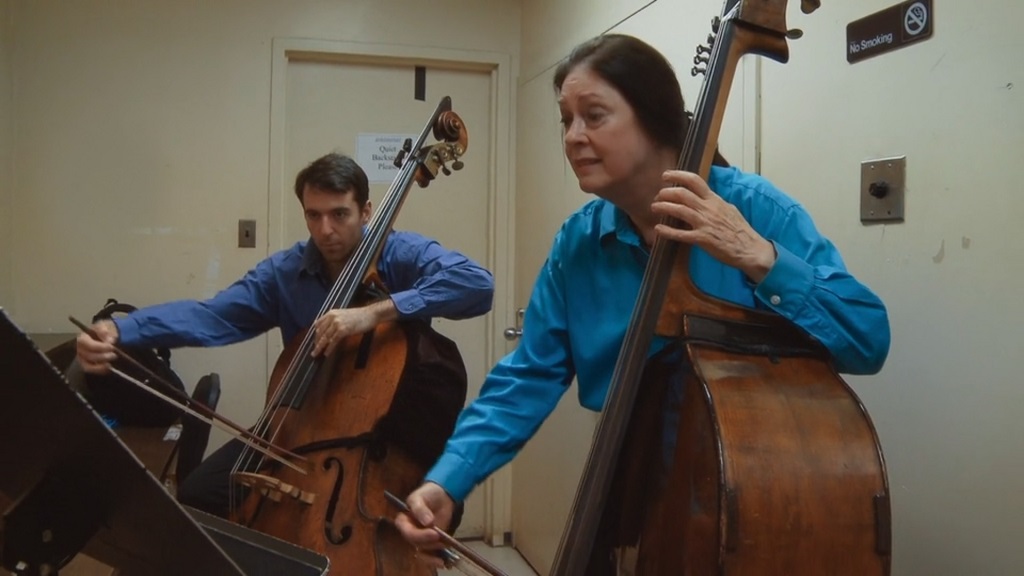Orin O’Brien never wanted the spotlight. Eschewing it from growing up in a household of actor parents, she channeled her passion through music. But that same passion led to becoming the first woman hired to the New York Philharmonic. Suddenly, that same spotlight she avoided for so long seemed inevitable. Filmmaker Molly O’Brien, Orin’s niece, beautifully captures the latter’s contributions as a musician in the short documentary “The Only Girl in the Orchestra.”
A delightful film that encapsulates a life well lived — warts and all — this documentary showcases Orin O’Brien’s humble journey in her respectable career despite her upbringing in a celebrity household. It also lets the audiences into her unique philosophy of enjoying life.
Orin O’Brien: The Titular Only Girl in the Orchestra
Right away, the film introduces us to Orin, who receives a visit from her niece Molly. The latter, filming her aunt’s retirement from the orchestra after 55 years of service, marvels at her aunt’s strength and dedication to the craft. Orin, in her part, has retained a wry and quick wit, sarcastically telling Molly that even at age 87 she could carry the double bass without any fuss.
Growing up in a celebrity household, it seemed that Orin would chart the same path toward the limelight. However, she strongly disliked it, despite her parents loving the attention. In her conversations with Molly, Orin states that her parents wanted — craved, even — to be in the spotlight, something she doesn’t share. Unsurprisingly, both found it hard to adjust when the public’s adulation went away.
So naturally, when her musical artistry and natural talents on the double bass led her to landing a spot in the New York Philharmonic, the public’s fascination followed, much to her chagrin. The first female musician hired full-time by the New York Philharmonic in 1966 under the tutelage of Leonard Bernstein, Orin was the only woman in that 104-member orchestra.

“If she’s attractive, I can’t perform with her. If she’s not, then I won’t”
Imagine falling in love with Beethoven at the age of 13, learning everything you could about classical music and double bass, and the only thing the public could ever think of was that you looked cute.
“The Only Girl in the Orchestra” provides additional context to the climate of the ‘60s, when hiring female musicians was still considered a maverick choice. Aside from having to dress in the washroom because there was nowhere she could change one rainy night, Orin had to endure side comments from both the media and her peers. One of the old news clips described her “as curvy as the double bass she play[ed],” with the rest of the news clippings carrying an overarching tone of sexism. This is punctuated by a quote from Zubin Mehta of the Los Angeles Philharmonic, “Women have no place in the orchestras.”
Nonetheless, validation came from the Maestro himself. Bernstein once said he loved Orin “because she is a source of radiance in the orchestra. Her musical involvement is total,” and later on adding that, “She’s a miracle.”

On Transitioning Out of the Competitive World of Music and Into Retirement
Now, in her retirement, Orin insists that her students and colleagues not make a fuss, instead maintaining a carefree attitude. When Molly asks if she can do anything to help her aunt, Orin retorts, “Just admire me.”
The film runs as a 30-minute retrospect of Orin’s remarkable life and career. And with that comes a few nuggets of advice that she believes have helped her succeed: don’t be afraid to play second fiddle. Everybody can’t be a general; someone has to be a soldier. What’s interesting in the orchestra is that I like being in the background. These tenets trickled down in her personal life, too. Instead of hogging the limelight, Orin has chosen to play a supporting role to the family, students, friends, and colleagues that surround her.
I enjoyed the tender moments between Molly and Orin, who have only got each other as remaining blood relatives. Their conversations about success, confidence, and life’s meaning highlight the reality of putting people on a pedestal. Oftentimes in our eyes, our heroes can do no wrong. Molly, who has looked up to Orin as her role model, wanted to live the same life: a New York City artist’s life — an independent woman’s life. Their conversation in the film, however, betrays the allure of success and reveals the fears and insecurities that make even the most successful person deeply human.
Delightfully insightful and criminally short, “The Only Girl in the Orchestra” serves as a masterclass not only on how to make it in music; but also how to succeed in life.
 ‘The Only Girl in the Orchestra’ is currently playing at this year’s DOC NYC Documentary Festival. The festival goes from November 8th to 26th. Join us for continual coverage.
‘The Only Girl in the Orchestra’ is currently playing at this year’s DOC NYC Documentary Festival. The festival goes from November 8th to 26th. Join us for continual coverage.


